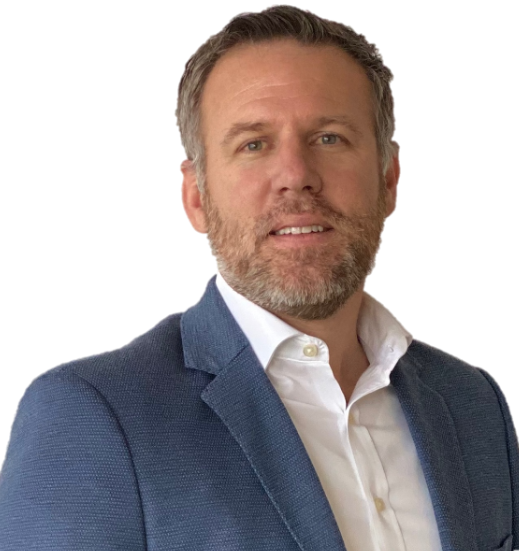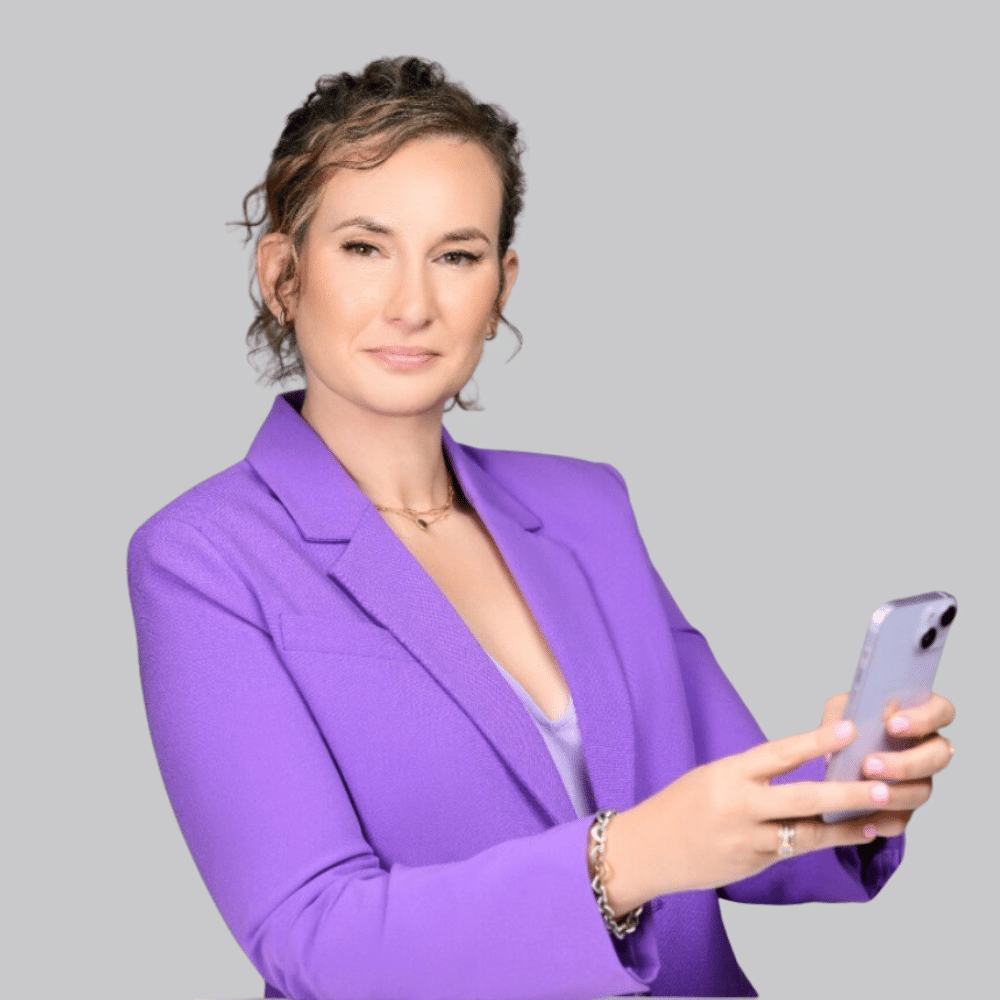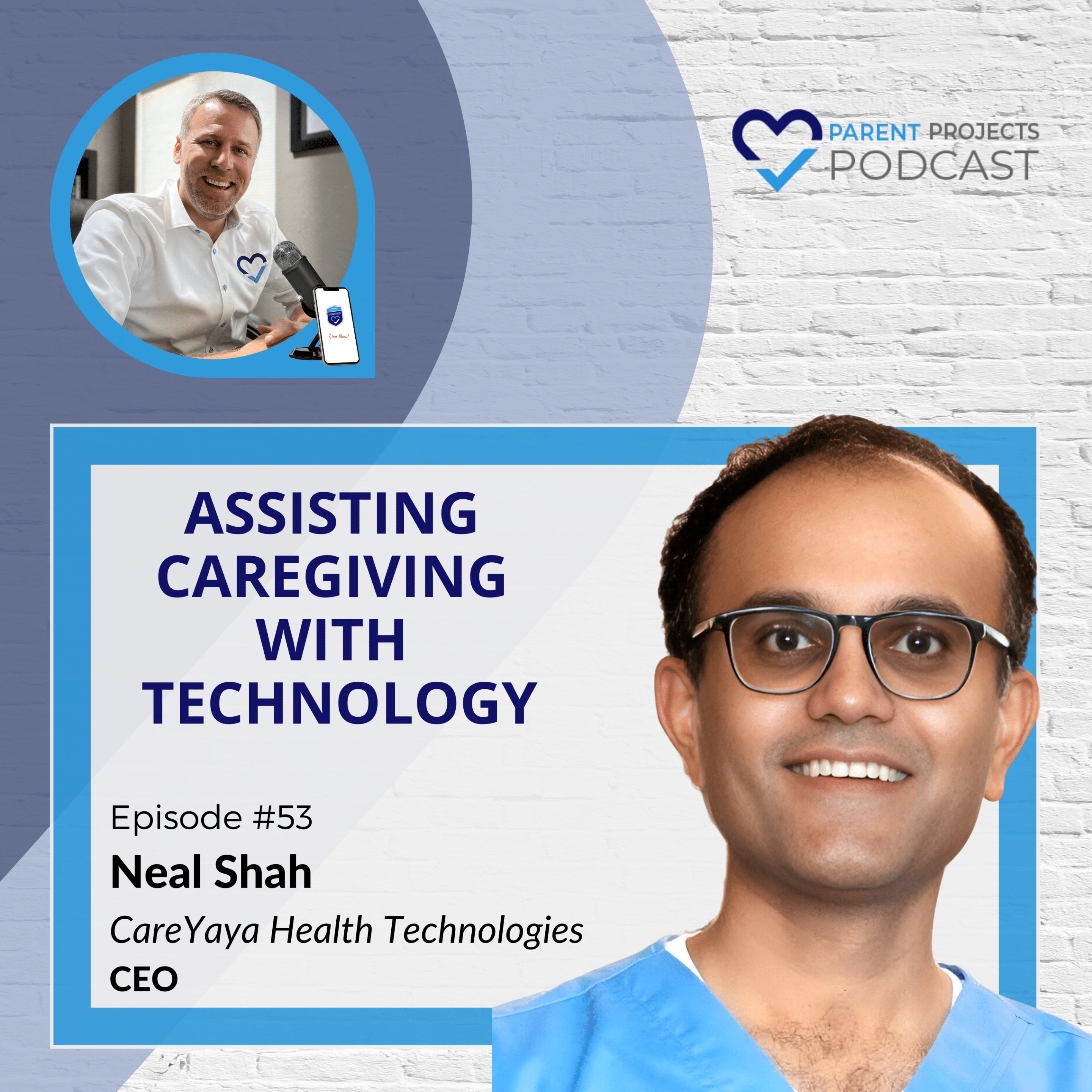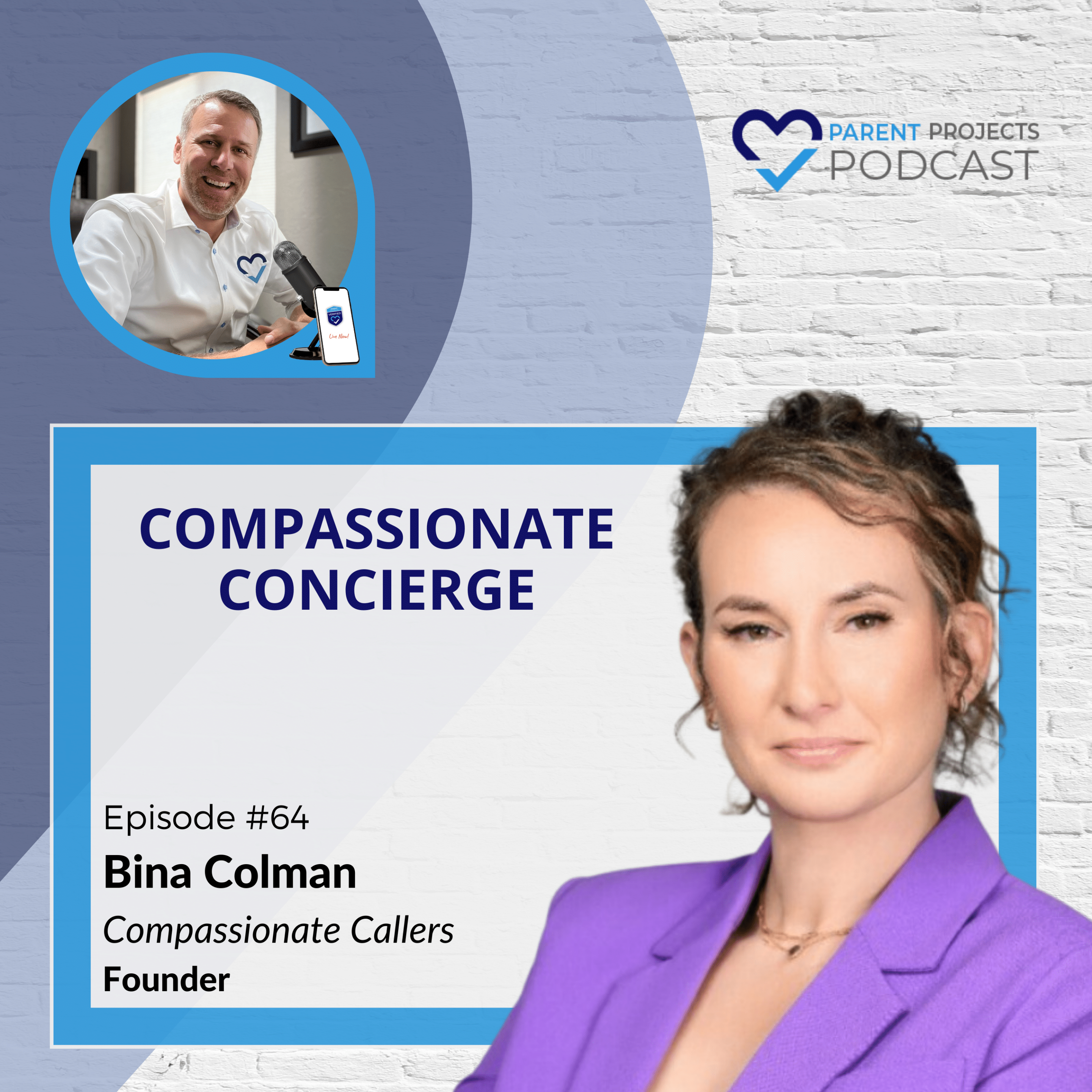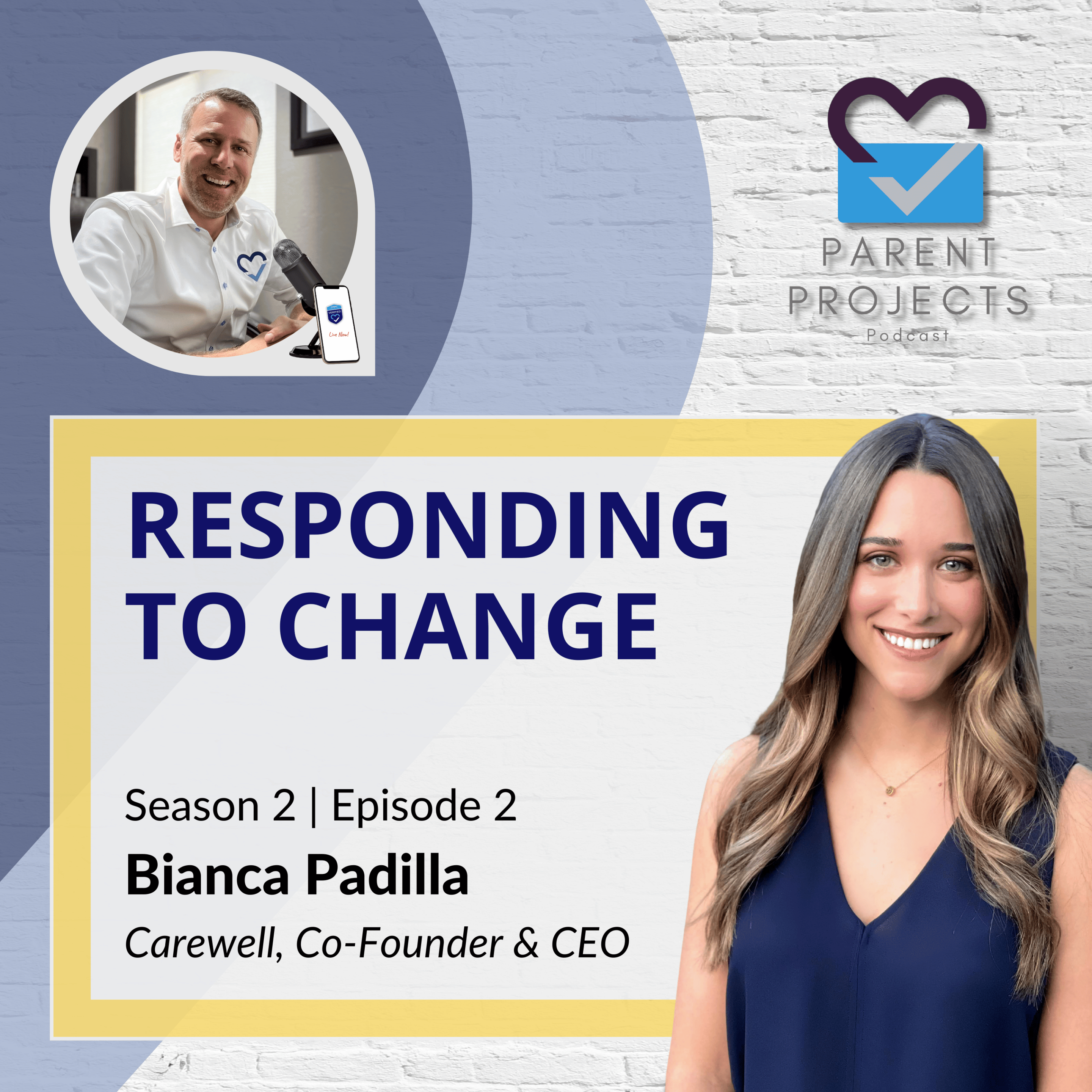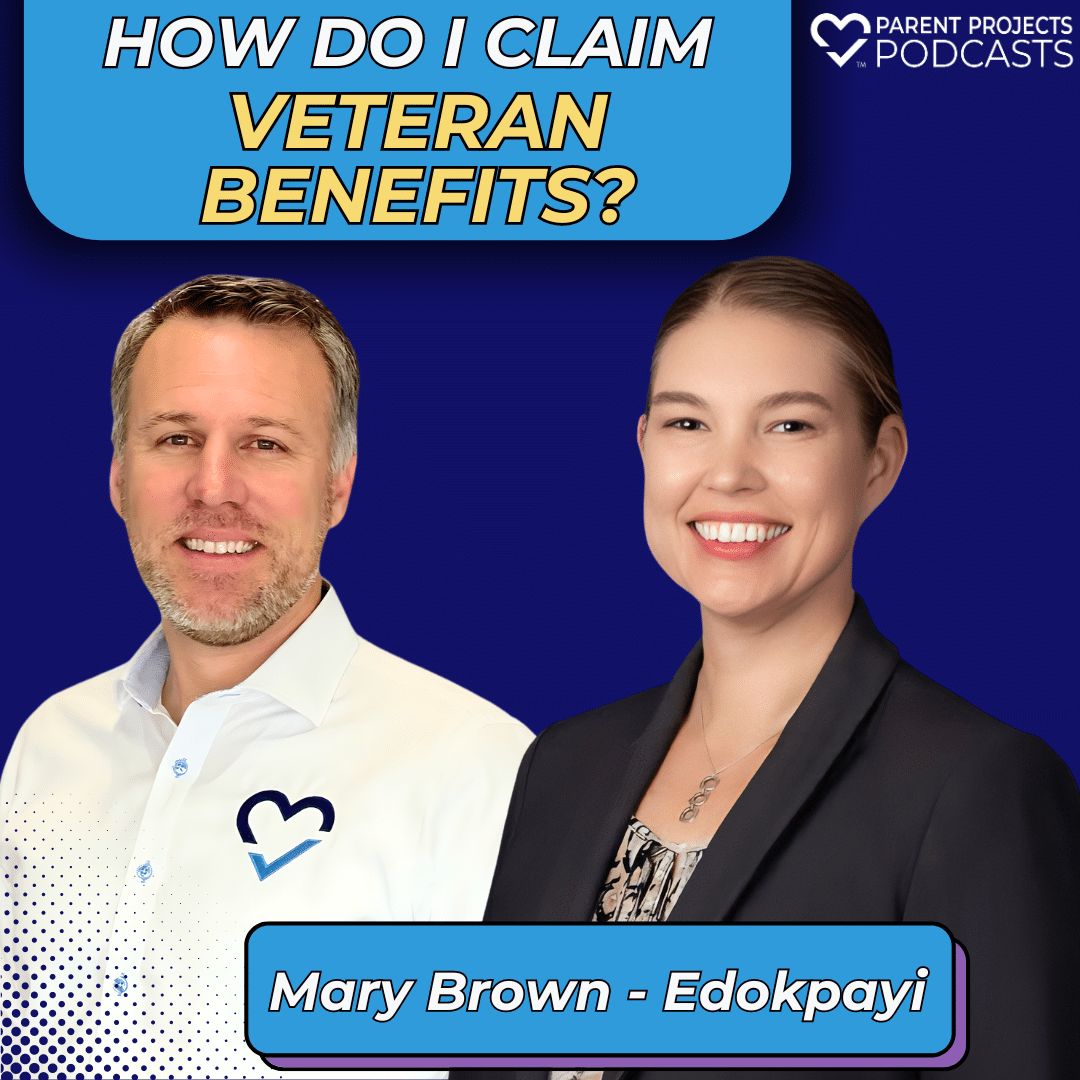Episode Transcript
[00:00:00] Speaker A: It's kind of like really families are very pleasantly surprised. He takes care of Joe, who's living with Parkinson's, and it's really awesome to see that great interpersonal relationship has been built that has now lasted for over a year.
He's still studying and he's actually going through the medical school application process. And I think while taking care of somebody consistently for kind of months on end, I think that one the family's just surprised at how great the care is compared to kind of any other care experience they've tried and just the inherent non monetary motivation in the caregiver for a student who's aspiring to a future clinical career, who's many times these caregivers will tell us they do it for free. They just want the experience. Many of them are writing their med school application essays about this. I think that's cool to see.
[00:01:02] Speaker B: You're listening to Parent projects, a family media and technology group production.
Now here's your host, Tony Siebers.
[00:01:11] Speaker C: Well, it started with a family caregiving situation between he and his wife, which is something that I think a lot of us start expecting to work through. Here has led our guest today into understanding how he can help all kinds of people that are stuck in family caregiving situations. Whether you're just shorthanded or you're looking for that new approach in order to break through and to find a way ahead, I think you're going to find that what Neil Shaw has to offer us with Karyalya and Just. The general approach of making use of multi generational folks and technology, connecting that gig economy into what we're dealing with today. It's going to be something refreshing for you. Hey, Neil, thank you so much for joining us on the podcast. And I'm excited, I'm hoping to just kind of dive right into what you guys are doing because I love how you've tackled the market with a fresh perspective of technology.
[00:02:06] Speaker A: Great. Yeah, Tony, thanks for having me. Really appreciate the opportunity.
[00:02:09] Speaker C: So you come in, you started with a situation, a personal situation that we've kind of talked a bit about. And being a caretaker, family caretaker for a family member, but instead of just stopping and figuring out how to build a better mousetrap against that, you really saw some promise in leveraging an untapped group of people who really had a desire and a need to get involved here. How did you even come about looking at that type of a problem?
[00:02:38] Speaker A: Yeah, great question. So basically I realized one of my biggest takeaways, I was in my mid to late 30s when within the matter of two years, I really got hit with caregiving responsibilities for two different family members, actually my grandfather first through dementia and then later my wife through cancer. And I basically realized one of the key fundamental challenges was when you can't get good, reliable care help, you end up feeling really guilty and doing it yourself. There were so many breaks within the care system. Everything from cost access, quality, affordability, convenience of booking that really just leave behind this mid career, kind of busy midlife person who's faced with caregiving responsibilities. So I thought there was a tremendous opportunity to build something else through Carrie. Our nickname for our project is Next Generation Caregiving. But really it has like a double meaning of next generation of technology as well as next generation of connecting generations. And to your question, I thought that there was this tremendous untapped workforce of today's youth college students aspiring to healthcare careers. Think about our doctors and nurses and physician assistants of tomorrow that make excellent caregivers. But they were really being left behind by the care economy because the care economy is not set up for a geek economy, flexible work solution. So we thought, why not build one? And that was kind of the genesis of the idea behind Caria.
[00:04:05] Speaker C: Well in a great opportunity at that because it seems to be a really low pressure I'm not going to say low hanging fruit, but it's a low pressure approach that if I'm trying to have a conversation with my family member, about my loved one, about having somebody come in and take care of them, and they're looking at it's a nurse or just at that level, it's more challenging if I can say, hey, we've got a nursing student, or we have somebody who wants to dedicate their life into helping people like us in this situation. Mom, would you sit down? Would you give her like an hour a day or would you let her come in for a couple of hours here to work off of that? Man, that could take so much pressure off. Love that model.
[00:04:51] Speaker A: Yes, I think you've nailed it. Sorry, go ahead.
[00:04:55] Speaker C: No, I was going to say what do you hear from students as a student start approaching this? I could tell as being a family member who has that product or that need in front of me, that project in front of me. What is it that the students are telling you guys that they really want to get out of it?
[00:05:13] Speaker A: So the students actually are finding just as much meaning from the care experiences of the families initially the students want to get out of it. Exposure to taking care of people, pathway to future clinical careers, kind of seeing what it's like helping people. A lot of the people we're helping relieve the care burn enough might be kind of like the midlife family caregiver who's caring for an aging parent going through dementia, Alzheimer's, Parkinson's. Sometimes it's people going through cancer. Sometimes it's people recovering from major surgeries.
And in all of these situations, the students initially enter in thinking, okay, I want to see what these ailments are like. This is kind of like a novel care experience compared to kind of doing rounds at the hospital. I'm actually getting to spend much one on one time with people seeing the journey, seeing the pros and cons of managing these things at home and seeing the impact on the family. And it develops a lot of bedside manner and empathy that makes them prepare better to be future clinicians. That's how they enter with much more of a practical mindset of I want to get this care experience at hours. What actually transforms as they start doing the care is the development of kind of the relationships they really get to see and develop medium and long term relationships with people and kind of like build a lot of empathy. And I think the students are deriving a lot of meaning and purpose from doing the work, which is just really.
[00:06:35] Speaker C: Awesome and heartwarming to and it's it'd be easy for us just to spend a ton of time just against what you guys do there at Yahya. But all that aside, really, it's your mindset, I mean, just pivoting here in our conversation around that mindset of how to bridge the gap. And you've utilized technology to take two groups that haven't necessarily wouldn't necessarily jump into each other or begin mixing that up and start bringing those things in so that they can naturally find the value that we know through the history of mankind.
There's that value there.
Are there certain cultures or are there any areas that you guys have seen that shocked you, that you expected to see or things that you didn't expect to see that maybe came out of the early days when you guys were kicking off out in North Carolina?
[00:07:29] Speaker A: Probably some of the biggest things that we saw emerge in the early days was it started developing almost like a grandkids type relationship. Like, number one bit of feedback we got from families was feels like grandkids, which wasn't the intent. The intent initially was like, these are college students. Go into clinical careers and they will help you as part of their learning before they go off and become a doctor or apply to physician assistant school, et cetera. But actually the nature of the interpersonal relationship was the biggest positive surprise that a lot of families started referring to these Yayas and their parents are looking forward to when the Kariyaya or the Yaya is going to come. And I thought that was kind of interesting because we picked the name even Yaya as like a play on words. It means grandmother in Greek. It means caregiver in other languages like Swahili and Thai. So we thought that it was like a playful play on words. But it was cool to see the real life impact that families started kind of like developing this grandkids, like relationship. And then the one kind of benefit of that has been, I think, to your point, families are finding it easier to socialize the care. They're telling mom or dad that we're not getting you a caregiver, but you are mentoring this wonderful college student before they go off and become a nurse or before they go off and become a doctor. And I think that's cool because it really helps socialize the care for the elder that's getting the help that you're not just somebody to be cared for, you're actually somebody that's passing on your knowledge and wisdom to the future generation. And there's kind of mutual benefit. And I think that similarly for the student, the student isn't just there doing something for someone, the student is there learning something from someone about their life experiences and all their wisdom and their stories. So I think that creating a relationship of mutual benefit, I think kind of makes it transcend the traditional care experience where one person is being paid to help the other person that needs help. This is kind of beyond that and I think that makes it more fun for both sides.
[00:09:32] Speaker C: Well, and you can enter that conversation with complete intellectual honesty.
It is it's supported. We see out of a lot of cultures that come down the United States having so many different cultures here in the US. I know we've seen a lot that come out of Eastern Europe and others in Latin America where grandma and grandpa will take care of grandkids, parents are out there and they are the breadwinners working against that. And then naturally the grandkids take care of the grandparents later in life and it builds a rapport with mom and dad because they get to watch their kids in action.
We generally get so busy, I think over the last maybe 20 years or so that we could have lost wind of that outside of if you happen to lived in one of those cultural centers and now you start introducing that concept which is rooted on a really valuable time tested capability. They're absolutely 20 year olds are absolutely capable of helping guide and find happiness and give purpose in that handing down of information.
I really love how you guys have come around to that and more than just presenting that, you're presenting that in a way that speaks into what the youth are looking for today too. You talk about that gig economy.
That's a real.
[00:11:05] Speaker A: I'll add one point to your kind of point about the grandkids thing which I think is just fascinating and I think actually great case in point.
My family is from India and actually in most kind of cities you live within 1015 minutes from parents and grandparents. And that's the way it's been literally for hundreds of years, right? And that's kind of the way America used to be a long time ago. But if you think about in the last three generations of American society, the probability that the midlife child lives within 20 minutes of the aging parent is I think, less than 20%. And then the probability of grandchildren to live within that is even less. Right? So you have a society of people but they're all like pretty scattered somebody had to move somewhere else for college, then they had to move somewhere else for their job, then second job, et cetera. So I think you have the ingredients of the society of a bunch of young people, a bunch of midlife people, and a bunch of older people, all of whom want the interconnection, but you don't have the natural nuclear family mechanism to kind of build that. So I think that there is a crisis of loneliness and isolation. I'm sure you hear about this, but the former surgeon general is going around and doing this big tour across society that loneliness is an epidemic. And I think, interestingly, it's not just in elders. I think that they say, like, one in four above 65 are lonely. It's worse than smoking 15 cigarettes a day. All these statistics, but also in the youth. And you see this in the university population right there's tremendous loneliness. So I think that kind of building a bridge between the two generations, the way kind of things used to be, and maybe just like, okay, you don't have your own grandchild nearby, ten minutes away, but you have somebody else that you kind of develop this relationship with. I think it can be massively fulfilling and rewarding. And actually, one of the hidden benefits we've seen as we've grown carry I is that the psychological impact on the college students is just as profound as on the elders. I think students are finding a deep sense of purpose and meaning, which is really cool to see.
[00:13:03] Speaker C: To your point about the geek economy no, go ahead.
What I was going to say is that connection, that kinetic connection between human beings, it's just written on our soul, and we can feel it. I think we all felt that during COVID in that denial off of that, we had never been more connected. To have more conversations going back and forth with video teleconferencing, I can reach people. I could never reach before very quickly. But the meaningful just what comes from that kinetic breaking it down. I can't help but think too.
[00:13:41] Speaker A: If.
[00:13:41] Speaker C: You even begin here, some of the hesitation that somebody might have. If my mom's hesitating to not quite know how to engage or how to approach her grandkids or to work, something like that, this becomes a really low bar of the approach towards that with somebody else, where they really want something. She's got that's knowledge in life, and to hear her stories and where those things are going, she can make use of the extra set of hands and start learning again how to turn on these things that we've turned off because we all got isolated against and away from our families so much lately. I could see just a great natural tool for stuff like that.
[00:14:20] Speaker A: Yes, 100%. It's amazing to utilize it for that purpose. And I think to your question about the geek economy, I think that's kind of a critical insight as well is that there is a very large care industry in the US. But it's not really set up and optimized for the gig economy. So if you consider that there are 20 million college students across the country at any given time, approximately 15% to 20% of them want to pursue a healthcare career. So you have like, almost 4 million students across the country.
The caregiving industry does not necessarily want them because the caregiving industry to date is focused on a localized staffing model of finding people to staff one on one with families who can do, ideally, 30, 40 plus hours a week of consistent care. And guess what? Most students in our area at Duke University, UNC, Chapel Hill, in your area at Arizona State or other wonderful universities, I mean, these students cannot do that on a fixed schedule. But if you create a gig economy platform, you can create something where families can get the care they need during the hours they need, and then students can kind of pick up the opportunities as they're available, and you just develop like, a novel, interesting solution, and you unlock this amazing workforce. So I think that's been kind of.
[00:15:34] Speaker C: Like a cool thing to observe, without a doubt. You know, what I want to do is I want to take this second for a break. When we go through this break, actually, I want to get in. We've got an in depth explainer video. We're going to play this, going to break down a little bit of what you guys are doing there at Carriaya Can. For those of you that are having a hard time kind of putting those pieces together, we'll throw some of that down for you when we come back. We're going to break down into some of those one on one conversations, some of those neat things that come out of leveraging technology in order to bring more assisting and more assistance inside caregivers. So stay tuned for the Parent Projects podcast. We'll be right back after this.
[00:16:34] Speaker A: College students generally have a lot of energy and they're interested in what they're doing.
You, he has many skills that older people need, really.
[00:16:52] Speaker C: How you doing, Joe? Good to see you, buddy. Good to see you too.
[00:17:01] Speaker D: I get to make connections with all the different families that I visit, and it really helps me learn bedside manner and other things that I'll need for when I am in nursing.
[00:17:28] Speaker C: Welcome back. Today we're talking about assisting caregiving with technology. And one of the key pieces of technology that we see out there that is helping to connect multiple generations here at a great high value is carryayaya. We've got Neil Shaw. Neil, again, thanks for joining us today. Founder of those are those a great little demo that kind of walked down in those testimonials, too, of what people feel they work.
Couldn't help but think, too, that it's not just about nursing. It is anybody that really is going to work with a geriatric population or just that requires that soft touch of bedside manner to get that practical experience but not have to have a 40 hours work week.
Not a CNA. I'm trying to think of what yeah, I guess CNAs would have been the way that people would have handled that before. Right. And I'd had friends that tried that and it was a stressful load on top of everything else.
You guys have really come up to mend that real well. Tell me, what are for? So what do you hear from families that are dealing with this or that are making use of having younger people from outside the family come in and start working with mom and dad?
[00:18:48] Speaker A: Yeah, I mean, I think that probably the number one and two people or the number one and two points that we hear from families are kind of quality and reliability of the students and then price and affordability. Those are kind of points we've really strived towards in terms of quality. I think that, for example, you saw some of the amazing individuals in the video, but Josh, he's aspiring to be an orthopedic surgeon. To get matched with an individual like that. Just a very conscientious, very charismatic, actually individual, highly intelligent person. A young man in a care industry that predominantly is like 90 something percent women. It's kind of like really families are very pleasantly surprised. He takes care of Joe, who's living with Parkinson's, and it's really awesome to see that great interpersonal relationship has been built that has now lasted for over a year.
He's still studying and he's actually going through the medical school application process. And I think while taking care of somebody consistently for kind of months on end, I think that one, the family is just surprised at how great the care is compared to kind of any other care experience they've tried and just the inherent non monetary motivation in the caregiver. For a student who's aspiring to a future clinical career who's many times these caregivers will tell us they do it for free, they just want the experience. Many of them are writing their med school application essays about this. I think that's cool to see. And then the second thing being price. So we are maximum social enterprise. We run the care matching completely free. We decided very consciously not to charge the consumer anything. So the entire amount the family pays goes straight to the caregiver. There's no markup, no middleman fee. So it's completely counter to the traditional care agencies that are taking in our area. In North Carolina, they charge families $30 an hour and they pay the caregiver less than half. Average caregiver wage in North Carolina is $12. So as you can imagine, the families are paying a lot and the caregivers are getting less than half of it. So it's a terrible experience for both sides. Carrie, it's the exact opposite family matches with a caregiver and it's typically $15 to $18 an hour and you pay the person the entire amount. So there's kind of no fee. And caregivers are thrilled. They love the transparency. Families are thrilled because they're getting, in my opinion, better care at half the price. So it's kind of a no brainer for both sides. And then the convenience of booking, don't force any contracts, don't force any minimums. It's all kind of schedule and book online. So I think for a busy midlife family caregiver, it's almost like a no brainer product that you have very high reliability people, you can leave reviews of each individual caregiver and every care session. You get full price transparency, you get convenience of booking. You can kind of do it online in two minutes without going through the whole rigor moral of dealing with a local provider and signing contracts and setting up. It's it's built to be kind of airbnb, uber like kind of user know, for the busy mid career person.
Right.
[00:21:46] Speaker C: Which is a lot of who these responsibilities are really falling on top of is our parents get disconnected with technology from things that their parents were able to do for themselves or maybe set up for a longer period of time. But now all of a sudden, they need a little help from their friends and that tends to fall onto us younger and younger.
So tell me, if someone were to ask too, where is it that a carrya gets paid in that system?
How do you guys benefit out of that system when everything passes through and just off of that transparency model for everybody?
[00:22:25] Speaker A: Yeah, it's a great question, actually. So we don't at all. And the goal is to build it rapidly and build it very large and never take a dime out of the interaction between the family and the caregiver. What our hope is that there are very large constituencies within the care ecosystem, very large businesses who are helping employees manage care needs, very large health insurance plans such as Medicare Advantage, who are helping take care of populations and ensuring them. Very large hospital systems who are transitioning to value based care and have an incentive to keep people out of the hospital and ultimately federal government and Medicare. We think the care industry has not built anything to partner with any of these systems. The care industry has optimized their entire business model to cater to kind of the top 1% to 5% upper echelon of the population and has never thought about kind of partnering and building something. So our hope is we'll do the exact opposite and we'll build something completely free to the consumer. Caregiver gets kind of the entire amount and then hopefully over time, as we grow and scale, we can start building partnerships with large employers who are managing family care needs of employees. Even in the video you saw, there were some people booking care. So that they can go to work and shouldn't the employer start helping out with that. So we thought that would be a partnership for US health insurance plans and hospitals. I think they're being measured now on 30 day readmissions, being measured on keeping people out of the hospital. So those are opportunities for us. And then hopefully longer term, I think government, I think Medicare is going to have to step up to the plate and partner with organizations to help people manage caregiving needs. And I don't think they're going to partner with $35 an hour local mom and pop agencies. So I think that a platform like this is imminently kind of partnership material at scale as it spreads all over the country and equally on the other side, a lot of people want to partner on workforce development. We are training and inspiring tomorrow's doctors, tomorrow's nurses, tomorrow's physician assistants. A lot of the younger individuals who do caregiving through caria tell us that without paid care experience opportunities, they might be discouraged from pursuing clinical careers. And there is a massive and growing shortage of doctors and nurses in the field. So we also think as a workforce development play, a lot of institutions reach out to us and say, hey, this is pretty cool what you guys are doing. So at scale, that could be kind of a good partnership opportunity. But I think all those we went at it the hard way so that we could keep care effectively, free or no fees to families and have the caregivers kind of earn their fair share given that they're doing 99.9% of our work.
[00:25:01] Speaker C: Yeah, that's the truth. And I think that leaning forward in developing innovative solutions is something that I think the technology minded are going to do upfront. Like we can get into it. We can start figuring out those models, changing up the way things are being done and changing the dynamic and the shift. Because I think we all recognize if we continue in the path in which we're working right now, when that 90 million hit that silver tsunami off of the backside, it's going to leave a gap. And I love that you're starting to train the next generation of folks that are going to sit out there. You talked through those numbers of 4 million different university level caregivers or people coming into that marketplace, in a marketplace that is so absent and so short of enough people to get into it in the first place. And the tool being if the tool being to that is really that gig economy, like great on you guys from that standpoint. But I'd also state if you're out there with a parent project and you're looking for where this goes within your own area, look within your family to find maybe that initiative. Do you have a niece? Do you have a nephew? Do you have something like that that they're just looking for that system that they could get onto that would make sense for them, or that they're looking for that soft touch, that bedside manner. This could be a great training system for them to be able to learn how to get into the game. Tell us, where are you guys at? What's your focus right now?
How do you want to tackle America?
[00:26:30] Speaker A: Yeah, great question. So very pleased to say that we were building it out of our home base in North Carolina, and over the last couple of years we had just gradually expanded across North Carolina and we're entering South Carolina. And then in the last two months, it kind of went viral on the college student side across campuses all over the country. So now we are absolutely scrambling to build out presences all across the Northeast. We're in the Boston area, we're all over the Midwest now. Michigan, Ohio, washington, DC. We're actually entering Florida, georgia in your neck of the woods. We're actually expanding to Arizona as well as California. Kind of anywhere where there's a great university and very large student population that wants to go into allied health fields. So because of that expansion and because we run the model for free, so we have zero advertising out there, it's been very grassroots. Yeah, we'd love to kind of collaborate with people, help serve people with care needs. If you live within 30 minutes of a major university, reach out to us. If we already probably are building carrier there, and if not, we'd be happy to build it for you. We think the model is viable kind of anywhere around the country. And as it grows, it's becoming kind of like a flywheel effect where students are telling friends at other schools and people are hearing stories of some of the people featured even in the video. We've helped them get into medical school, we've helped them get into MP programs, we've helped them get into PA programs. So I think it's becoming like a workforce development play for students. So, yeah, we're expanding very rapidly across the country, so we're always looking for people to help with care. We're looking for healthcare systems to partner with just kind of any other organizations that might be interested in.
[00:28:07] Speaker C: And we saw your website up there. How about social media? Where can people find you guys on social media?
[00:28:13] Speaker A: Yeah, I'd say are probably most active. We're pretty active on LinkedIn, interestingly enough. So it's at Carrie on LinkedIn and then also we're very active on Instagram and Facebook and it's the same handle at so yeah, definitely reach out on any of the know. We'd love to kind of collaborate there. Send us a know. We have somebody on our teams always checking and then we're always looking to engage with and cross promote kind of people, share their stories, things like that. It's like a great way to build awareness.
[00:28:44] Speaker C: I love know. Neil Shaw, Care yaya. Fantastic new approach into the marketplace. Use. Of technology, that build of empathy, that practical experience, that kinetic experience, that's something that just was sucked out of the economy for so long and sucked out of the experience.
Just good on you for what you guys are doing off of that.
Hope the best for you and your companies. We go forward. I imagine we'll know each other for some time and continue to fall back. We'll have you back on the show.
[00:29:16] Speaker A: Yeah. Tony, thanks very much for the opportunity and thanks everyone for taking the time to listen. I really appreciate it.
[00:29:20] Speaker C: It was wonderful. Thank you for sharing your time, talents and treasures with us in our audience. Take care.
[00:29:30] Speaker E: Well, that's it for this team this week and thanks for joining us. If you've enjoyed the content, remember to subscribe and to share this episode on the app that you're using right now. Your reviews and your comments, they really help us expand our reach as well as our perspectives. So if you have time, also drop us a note, let us know how we're doing for tips and tools to clarify your parent project, simplify communication with your stakeholders, and verify the professionals that you choose. You can find us on YouTube, follow us on Instagram and Facebook. Thanks again for trusting us. Until our next episode. Behold and Be Held.
[00:30:03] Speaker B: Thank you for listening to this Parent Projects podcast production. To access our show notes, resources or forums, join us on your favorite social media platform or go to parentprojects.com.
This show is for informational and educational purposes only.
Before making any decisions, consult a professional credentialed in your local area.
This show is copyrighted by Family Media and Technology Group, Inc. And Parent Projects, LLC.
Written permissions must be granted before syndication or rebroadcast.
